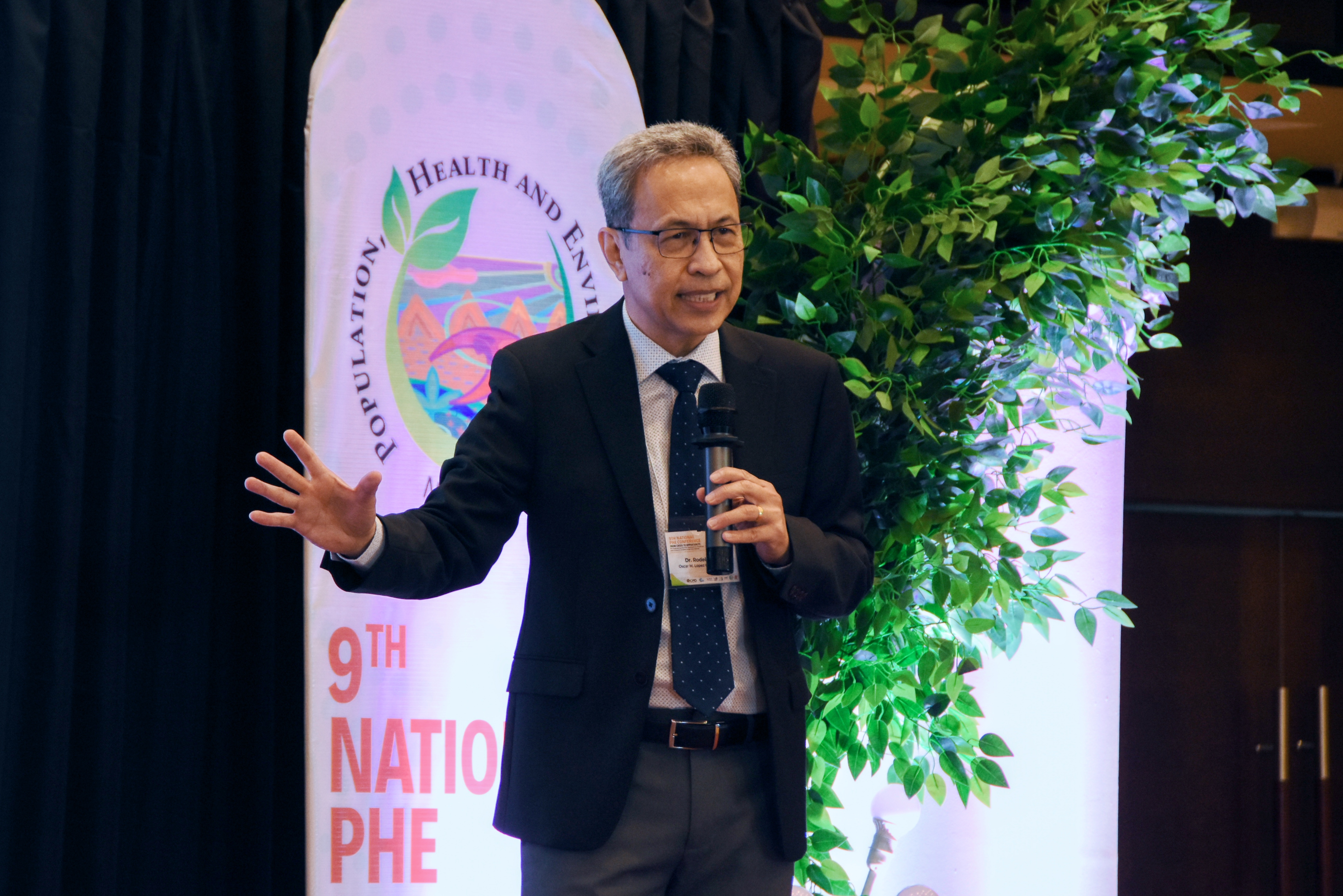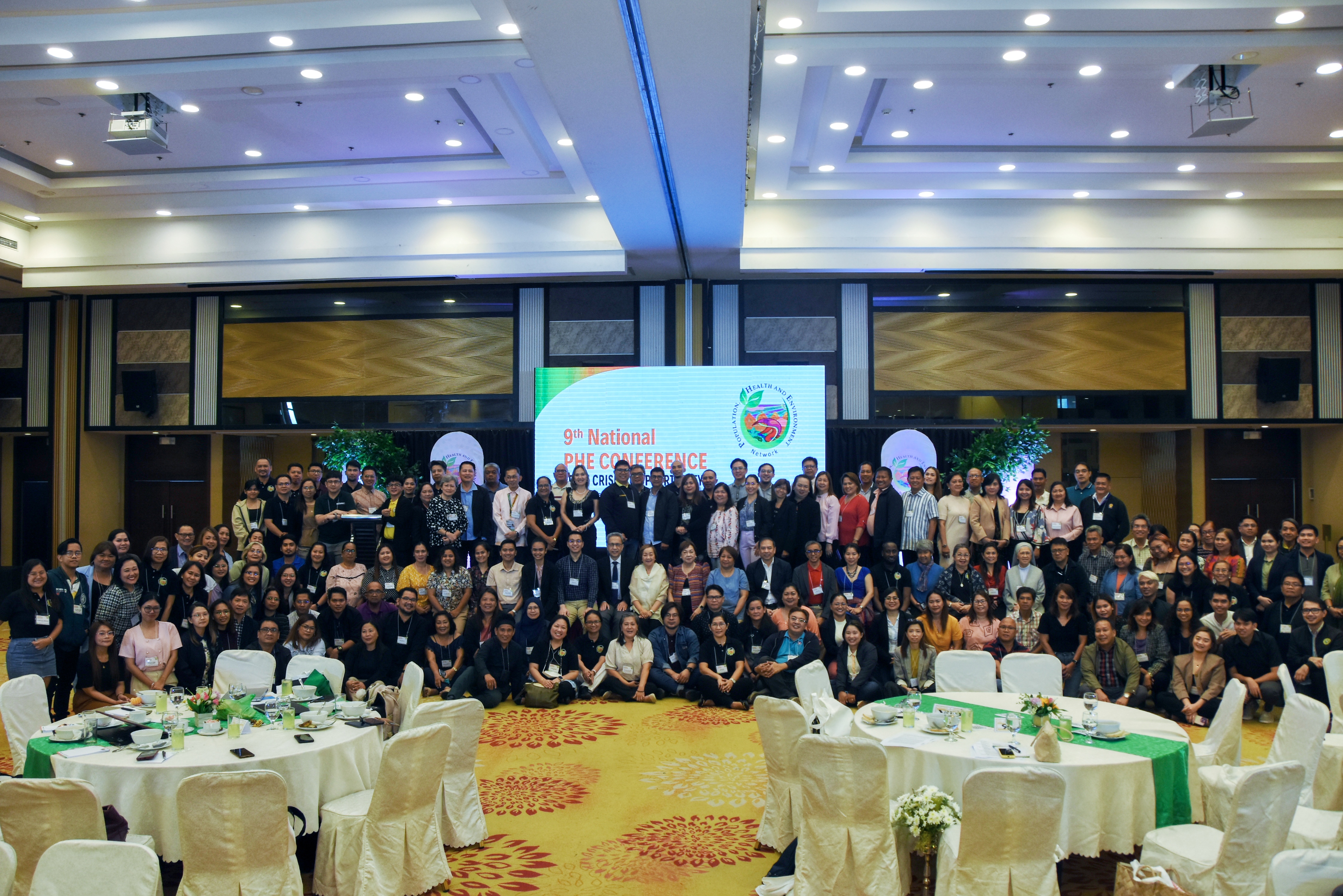Fisherfolk women in Palawan prepare mangrove trees as “twins” of their newborn children under the Twin-Bakhaw Project.
In celebration of Earth Day 2024, the Commission on Population and Development (CPD), Department of Environment and Natural Resources (DENR), and PATH Foundation Philippines, Inc. (PFPI) will be signing a Memorandum of Understanding (MOU) underscoring the crucial need for integrated approaches to address the complex web of development challenges facing the Philippines and the planet, particularly those related to population, health, environment and development (PHED).
Hosted by the DENR as part of the Earth Day Every Day Project launch at the Music Hall of the Mall of Asia on April 22, 2024, the MOU signing signals a significant step towards a more collaborative approach to addressing the complex challenges facing the country at a crucial time when the world is grappling with the realities of climate change and its cascading effects on various aspects of development.
Dr. Joan Regina Castro, PFPI Executive Vice President, stressed that the development challenges the planet and its people face, from biodiversity loss and food insecurity to pollution, are all interconnected and further compounded by the climate crisis and changes in population dynamics.
“It’s crucial now more than ever to apply interdisciplinary and cross-sectoral approaches. Integrating population considerations into programming and policymaking while building climate resilience in communities is paramount to sustainable development,” Dr. Castro said.
Dr. Castro added that by recognizing the interconnectedness of these issues and fostering collaboration among stakeholders, the country can develop holistic solutions that address the root causes of development challenges.
Traditionally, development programs and policies have been designed in silos. The CPD-DENR-PFPI partnership recognizes the limitations of this approach and pushes for the mainstreaming of the integrated PHED approach. This means considering population dynamics when crafting solutions for environmental issues and vice versa.
“Mainstreaming PHED allows us to address these interconnected issues holistically and efficiently. It brings together various stakeholders to work towards a common goal,” Dr. Castro said.
PFPI is co-implementing a five-year USAID-supported project, Building Capacity for Integrated Family Planning/ Reproductive Health and Population, Environment, and Development Action (BUILD), designed to leverage the interconnectedness of PHED sectors to address lackluster economic development, environmental degradation, biodiversity loss, high levels of unmet need for family planning and rapid population growth.
The partnership between CPD, DENR, and PFPI signifies a commitment to operationalize integrative solutions to interlinked issues. Through joint efforts, the organizations aim to advocate for and implement policies and programs that address PHED concerns cohesively. The partnership is envisioned to serve as a model for localization, scale-up, and institutionalization of integrated approaches to sustainable development.
The MOU highlights the importance of coordinating activities and disseminating key messages about PHED integration. By advocating for cross-sectoral approaches and generating political commitment for policy and program proposals, the partnership seeks to support the realization of the objectives of the three organizations in the realm of PHED. Through joint training, workshops, and technical assistance, the parties involved aim to contribute significantly to the country’s development targets.
The partnership also marks a significant milestone in the journey towards addressing interconnected development challenges in the Philippines. By bringing together key stakeholders from different sectors, CPD, DENR, and PFPI are paving the way for a more integrated and sustainable approach to development. As the world commemorates Earth Day, this partnership serves as a beacon of hope for a future where people and the planet thrive in harmony.
Ultimately, this tripartite MOU signifies a commitment to improving the lives of Filipinos. By working together and adopting an integrated approach, the CPD, DENR, and PFPI hope to serve as a model for future collaborations that prioritize a healthy environment, a healthy population, and a sustainable future for the Philippines. This collaboration between government agencies and a non-profit organization also serves as a testament to the importance of a unified front in achieving sustainable development. ###





